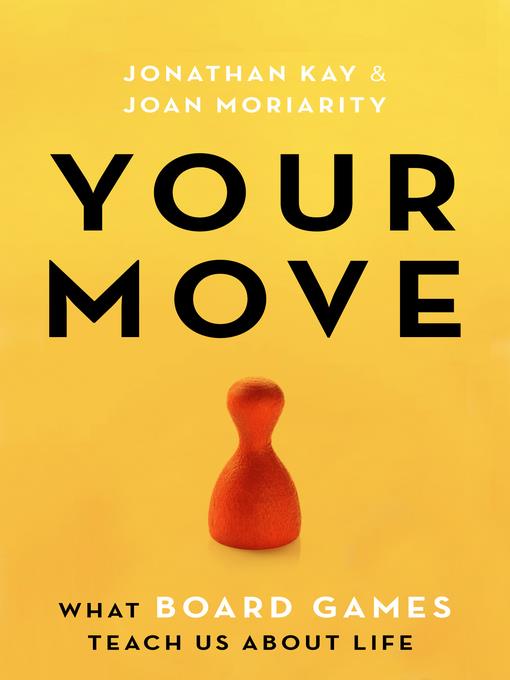
Your Move
What Board Games Teach Us About Life
کتاب های مرتبط
- اطلاعات
- نقد و بررسی
- دیدگاه کاربران
نقد و بررسی

July 15, 2019
A nonfiction work explores society and culture through the lens of tabletop games. Board games have undergone a resurgence in recent years--perhaps partly, debut author Moriarity argues, as a rejection of the ubiquity of digital entertainment--but they have been with us for centuries. They often replicate some aspect of real life: war, wealth accumulation, resource management. In this way, they provide an intriguing mirror of the society in which they are created. "This is not a book of strategy tips or game reviews," writes Moriarity at the beginning of this volume. "It is about the things games can teach us about ourselves. Each chapter focuses on one or two game titles...and draws out a revealed lesson in history, psychology, philosophy, society or culture." Moriarity, a gamer-turned-writer, and Kay (Among the Truthers, 2017, etc.), a writer-turned-gamer, take turns, chapter by chapter, pulling at those threads that they find most interesting. Kay uses Settlers of Catan--the first European title to become highly popular in the United States--to examine how European board games in the postwar years tended to focus on peaceful, creative themes in contrast to the conflict- and competition-driven American ones like Risk. Moriarity reveals how The Game of Life--the 1960 reimagining of Milton Bradley's original 1860 game The Checkered Game of Life--dispensed with its predecessor's concept of moral choice and replaced it with a deterministic quest to gain material wealth. In addition to providing a window into society, games offer players an opportunity to learn (sometimes unwittingly) about other segments of society. Kay discovers how two games--Greenland and 1812: The Invasion of Canada--made him think about and even identify with different cultures. Moriarity (in a chapter called "Horrible People") confronts her prejudices about the sort of people who love Cards Against Humanity. Kay and Moriarity are both skilled writers and elucidators, and their voices are distinct enough to provide the book with a pleasing yin and yang. Their dueling chapters on Monopoly skillfully illustrate their various interests. Kay comments on how the game's poor-get-poorer, rich-get-richer mechanic is "characteristic of a certain dynamic observed in nature, engineering, and human relationships, one that mathematicians sometimes describe as unstable equilibrium." Moriarity, meanwhile, focuses on the psychological benefits--and worsened gameplay--of the popular but noncanonical Stupid Free Parking Rule: "I am using the word 'rule' in the loosest possible sense because there is, in fact, no such rule--which is a big part of the problem." The authors include a mix of classic titles that most readers will know (Scattergories, Scrabble, Dungeons & Dragons), with more-complex offerings from the tabletop world (Pandemic, Dead of Winter, Legend of the Five Rings). It's a far more perceptive and intriguing book than it appears at first blush, particularly for those readers who have never thought of games as an artistic medium--at least not one that comments on society. Regular gamers will enjoy these takes on familiar titles. And readers just discovering the tabletop renaissance will likely want to play some of these games themselves. An illuminating book that both introduces and critiques an often overlooked art form.
COPYRIGHT(2019) Kirkus Reviews, ALL RIGHTS RESERVED.

























دیدگاه کاربران